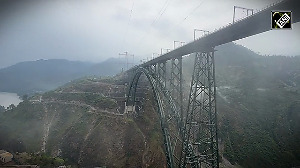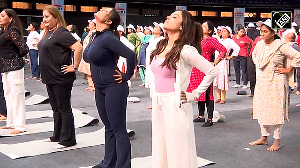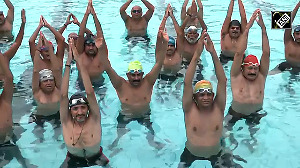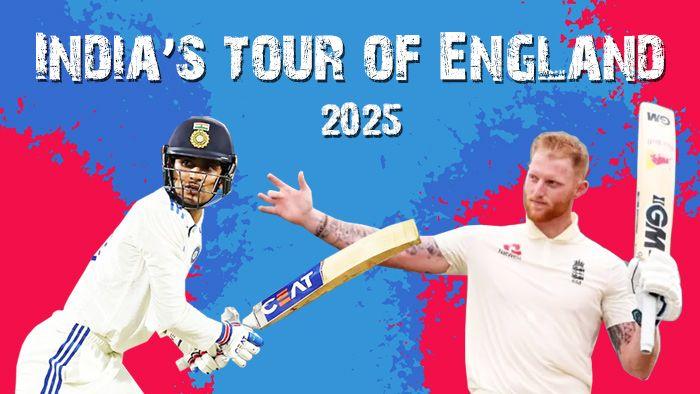In a strong warning to the newly-elected office-bearers of the Board of Control for Cricket in India, former secretary S K Nair on Friday condemned remarks made by some officials against their predecessors.
The new office-bearers, then in the opposition, had created several roadblocks when they wanted to do work, he said in a statement, reacting to remarks of ''a section of BCCI officials who were trying to establish that the earlier regime had done no work with regard to marketing of Board's rights".
''If the new regime wants to do real good work in the interest of Indian cricket and the Board, the present opposition would not create any undue roadblocks. It could, at best, offer constructive criticism,'' Nair said.
''What they are talking about is nothing new and the earlier regime in fact had introduced the marketing initiatives years ago.
"It is a cheap publicity stunt of a section of present officials and a way to hoodwink the public,'' he added.
He stated that he would welcome any new changes for the benefit of the game and the Board.
''But to say that all the changes projected by the new regime were their brain wave and the earlier regime did not work at all, is far from truth,'' he added.
In support of his contention, Nair furnished a comparative list of marketing initiatives taken by the previous regime of the Board and ones that are being promised by the new regime.
The new regime has claimed that there would be separate team sponsors for the Tests and ODIs and ICC events, Nair stated, adding this arrangements was already in place when the Board had entered into the contract with Sahara in December 2002.
For the ICC events, Sahara had approached the Board and offered to pay an additional amount for the team sponsorship. Since Sahara was already supporting the Board through regular team sponsorship a separate arrangement was entered with them.
Nair said the new regime has claimed that there would be separate sponsor for the non-leading arm, with the team sponsor getting the space on the chest and leading arm of the player's shirts. According to him, this arrangement too was in place. Sahara came forward to pay an additional amount to avail the non-leading arm, which was commensurate with market values.
Nair recalled that during the ICC Champions Trophy 2002, the ICCI decided that Sahara could not be the Indian team sponsors since it was in conflict with an ICC sponsor, South African Airways, and there was a controversy. The Indian team ultimately did not wear any team sponsor logo for the tournament and Sahara paid the full money and the players duly received their share.
He stated that it was, in fact, the earlier regime that had introduced the idea of conglomerate sponsorship for Test and ODI series played at home.
This was done to maximize the Board's revenues. Earlier, Pepsi were the sponsors who paid Rs 85 lakh per match. In September 2003, however, the Board entered into an arrangement with Pepsi, Videocon and TVS and the earnings galloped to Rs 1.15 crores per match.
The new regime claims that there would be an official airline for the Board. Nair observed that for many years Indian Airlines had been the official airline of the Board and they offer a huge 42 per cent discount on the basic fare for the travel of the players, match officials and team officials. He further stated that this facility has also been extended to the affiliated units for their Ranji Trophy teams, team officials and match officials. This facility was however, not extended to administrators.
Nair also expressed surprise about the new officials speaking about introducing an official travel partner and official hotel. He stated that Trade Wings Limited has been the official travel agent of the Board for nearly 20 years and had offered special discounts to the Board from time to time. He also stated that the Taj Group had been the official hotel to the Board since 1993-94 and the existing arrangement covered 28 Taj Group Hotels across the country.
The new regime's contention that there would be separate tenders for Broadband, Mobile and Telephony Rights was also not new, according to Nair. Earlier, the Board had clubbed these rights with the Television Rights. But since 2004, when tenders were floated, these rights had been segregated and separate tender papers were also in place for these rights. It was decided that the tenders for these rights would be floated after the TV Rights deal is finalised.
"But no progress could be made because of a spate of litigations," Mr Nair said.
He claimed that the Board earlier had suffered the same fate with regard to merchandising rights. He explained that before taking up the merchandising rights, it was necessary for the Board to register its trademark, without which the sale of merchandising rights would be a futile exercise. An arrangement was also drawn up with a London-based legal firm, Picton Howell, that specialised in trademark registration 2003-04 with the due approval of the working committee, but this could not be proceeded with because of litigation.
Nair stated that he was not in favour of having any particular official media partner to the Board as claimed by the new regime.
The media across the globe would have to be treated impartially and no special favours should be given to any particular media. This would create the danger of a partisan media and should be avoided.
Therefore, in its effort to make money, the Board should not lose its sight of what is fair and what is not, he said.
He also observed that the Challenger Trophy, which is a property of the Board, was allotted to Punjab Cricket Association (PCA) this year. Earlier the Board was able to market the rights to the Challenger Trophy subject to the top Indian players participating in the tournament.
Nair stated that for the 2003 tournament, the Board was able to earn as much Rs 1.5 crores. "For the tournament this year, PCA had done well to sell the Television and sponsorship rights to the event, but to the utter surprise of all concerned, had refused to part with the earning from these rights to the Board and nor have they disclosed what were the earnings from the event." Nair said.
He stated that from the sale of ground advertisement rights, each staging association could earn about Rs one crore. The Board duly helped those associations to sell these rights who were unable to do so on their own.
Nair stated that he would welcome any new changes, for the benefit of the game and the Board.
''But to say that all the changes projected by the new regime were their brain waves and the earlier regime did no work at all, is far from the truth.'' he said.






